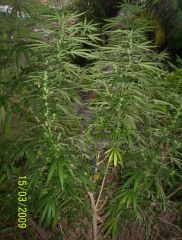-
Total de itens
1265 -
Registro em
-
Última visita
Tipo de Conteúdo
Perfis
Fóruns
Galeria
Tudo que Mactak postou
-
Cerveja no balde? Por acaso é a Ginger Ale? Eu tinha um guia de cerveja caseira, vou procurar e scannear pra postar aqui, se achar, é coisa bem velha mesmo.
-
Falaê, camarada. Psicodelia da boa é o Flaming Lips, vai na busca dos albuns "Yoshimi battle the pink robots" e "Transmissions from the satellite heart", sonzera classe A. Tô escutando Too Rude, Rolling Stones.
-
Talvez esse "vazio" seja apenas uma fase meio turbulenta, ou vc tenha saido de uma e esteja sentindo o baque agora. Como a galera já citou a importância de um hobby para extravasar deixo a dica de tentar aprender a tocar um instrumento musical, que também é uma bela terapia. E conhecer gente diferente é muito bom, trocar energias com a galera. Arrumar uma ou duas garotas pra um menage...brincadeira. Mas quando a gente conhece pessoas interessantes os nossos horizontes se ampliam e nos dão uma visão diferenciada das coisas. Força ai, irmão. Pensar positivo e procurar ajuda já é um grande avanço pra sair dessa e preencher esse vazio.
-
Tem outro filho além do Tuminha?
-
Quando vou colhendo aos poucos gosto de colocar direto numa caixa de charutos Romeo y Julieta, cubano. A secagem rola dentro da caixa mesmo, que forro com papel de seda, só pra não ficar direto na madeira. Além de secar na medida fica com um gostinho irado. Infelizmente não sei que madeira é usada na caixa.
-

The Wackness: "doidão" Com Legenda Em Portugues..
topic respondeu ao HempLovers de Mactak em Galeria de Vídeos
A trilha sonora também é bem loca. Eu também acho que esse filme é bola dentro, qual o maconheiro que não se sente um outsider numa sociedade babaca pracarai? Enche o saco essa superficialidade da sociedade. -
Imbecil de marca maior. Ainda defende gastar uma puta grana com operações policiais e na manutenção de cadeias. Não vê o quanto desse dinheiro poderia ser aplicado em educação e saúde se ao menos o cultivo e consequentemente o uso da cannabis fosse legalizado. Esse escroto fazia a alegria dos jornalista que cobriam casos policias, tipo Afanasio Jazade, que por sinal também é politico e igualmente motherfucker.
-
Dread Zeppelin - Stir it Up
-
Não entendi a aversão ao site. Já fiquei bem tentado em comprar algumas coisas, não só desse site como de alguns outros que estão na net e são brasileiros. Ninguém que conheço cultiva enteogenos, então fica muito difícil conseguir qualquer coisa senão por meio destes sites. Se não forem eles só nos sites gringos, que estão vendendo também, ou seja é comercio tanto quanto. Gostaria de saber o motivo do tua ojeriza.
-
Não desmerecendo você. vai te foder.
-
Resta esperança de rolar uma jurisprudência quanto ao cultivo para consumo, como aquele caso na Argentina, em que o hermano tinhas umas plantas na varanda do apto. O grande lance é mesmo a Marcha. Será que o FHC vai? Poderia, né? Seria uma presença interessante que engrossaria nossas fileiras.
-
Quando morei no Japão entrei num parque com muitas plantas dessas, na hora pensei, "carai, achei o canal". Mas chegando perto me liguei que não era cannabis. Depois fiquei sabendo que nas matas de Hokaido existe uma espécie de cannabis que os caras chamam de Red Tops, alguém já ouviu falar dela?
-
A posição dos EUA é hipócrita pracarai. Quando imperava a lei seca e a crise da bolsa de 1929 levava os magnatas a pular do alto de seus edifícios os caras aproveitaram para liberar o álcool, gerando arrecadação. Temos visto aqui mesmo no fórum o parecer de alguns políticos e economistas ressaltando os beneficios que traria a legalização no que diz respeito a economia. Estão dando um tiro no pé outra vez. O Vaticano também só dá bola fora. Cambada de hipócritas. Querem continuar com essa ladainha de Guerra Contra as Drogas até quando? Porra. Revoltei geral.
-
Pil- Rise
-

Economista De Harvard: Cinco Motivos Para Legalizar A Maconha
topic respondeu ao CanhamoMAN de Mactak em Notícias
E a revista The Economist também mandou essa: http://www.economist.com/opinion/displaySt...e=hptextfeature How to stop the drug wars Mar 5th 2009 From The Economist print edition Prohibition has failed; legalisation is the least bad solution A HUNDRED years ago a group of foreign diplomats gathered in Shanghai for the first-ever international effort to ban trade in a narcotic drug. On February 26th 1909 they agreed to set up the International Opium Commission—just a few decades after Britain had fought a war with China to assert its right to peddle the stuff. Many other bans of mood-altering drugs have followed. In 1998 the UN General Assembly committed member countries to achieving a “drug-free world” and to “eliminating or significantly reducing” the production of opium, cocaine and cannabis by 2008. That is the kind of promise politicians love to make. It assuages the sense of moral panic that has been the handmaiden of prohibition for a century. It is intended to reassure the parents of teenagers across the world. Yet it is a hugely irresponsible promise, because it cannot be fulfilled. Next week ministers from around the world gather in Vienna to set international drug policy for the next decade. Like first-world-war generals, many will claim that all that is needed is more of the same. In fact the war on drugs has been a disaster, creating failed states in the developing world even as addiction has flourished in the rich world. By any sensible measure, this 100-year struggle has been illiberal, murderous and pointless. That is why The Economist continues to believe that the least bad policy is to legalise drugs. “Least bad” does not mean good. Legalisation, though clearly better for producer countries, would bring (different) risks to consumer countries. As we outline below, many vulnerable drug-takers would suffer. But in our view, more would gain. The evidence of failure Nowadays the UN Office on Drugs and Crime no longer talks about a drug-free world. Its boast is that the drug market has “stabilised”, meaning that more than 200m people, or almost 5% of the world’s adult population, still take illegal drugs—roughly the same proportion as a decade ago. (Like most purported drug facts, this one is just an educated guess: evidential rigour is another casualty of illegality.) The production of cocaine and opium is probably about the same as it was a decade ago; that of cannabis is higher. Consumption of cocaine has declined gradually in the United States from its peak in the early 1980s, but the path is uneven (it remains higher than in the mid-1990s), and it is rising in many places, including Europe. This is not for want of effort. The United States alone spends some $40 billion each year on trying to eliminate the supply of drugs. It arrests 1.5m of its citizens each year for drug offences, locking up half a million of them; tougher drug laws are the main reason why one in five black American men spend some time behind bars. In the developing world blood is being shed at an astonishing rate. In Mexico more than 800 policemen and soldiers have been killed since December 2006 (and the annual overall death toll is running at over 6,000). This week yet another leader of a troubled drug-ridden country—Guinea Bissau—was assassinated. Yet prohibition itself vitiates the efforts of the drug warriors. The price of an illegal substance is determined more by the cost of distribution than of production. Take cocaine: the mark-up between coca field and consumer is more than a hundredfold. Even if dumping weedkiller on the crops of peasant farmers quadruples the local price of coca leaves, this tends to have little impact on the street price, which is set mainly by the risk of getting cocaine into Europe or the United States. Nowadays the drug warriors claim to seize close to half of all the cocaine that is produced. The street price in the United States does seem to have risen, and the purity seems to have fallen, over the past year. But it is not clear that drug demand drops when prices rise. On the other hand, there is plenty of evidence that the drug business quickly adapts to market disruption. At best, effective repression merely forces it to shift production sites. Thus opium has moved from Turkey and Thailand to Myanmar and southern Afghanistan, where it undermines the West’s efforts to defeat the Taliban. Al Capone, but on a global scale Indeed, far from reducing crime, prohibition has fostered gangsterism on a scale that the world has never seen before. According to the UN’s perhaps inflated estimate, the illegal drug industry is worth some $320 billion a year. In the West it makes criminals of otherwise law-abiding citizens (the current American president could easily have ended up in prison for his youthful experiments with “blow”). It also makes drugs more dangerous: addicts buy heavily adulterated cocaine and heroin; many use dirty needles to inject themselves, spreading HIV; the wretches who succumb to “crack” or “meth” are outside the law, with only their pushers to “treat” them. But it is countries in the emerging world that pay most of the price. Even a relatively developed democracy such as Mexico now finds itself in a life-or-death struggle against gangsters. American officials, including a former drug tsar, have publicly worried about having a “narco state” as their neighbour. The failure of the drug war has led a few of its braver generals, especially from Europe and Latin America, to suggest shifting the focus from locking up people to public health and “harm reduction” (such as encouraging addicts to use clean needles). This approach would put more emphasis on public education and the treatment of addicts, and less on the harassment of peasants who grow coca and the punishment of consumers of “soft” drugs for personal use. That would be a step in the right direction. But it is unlikely to be adequately funded, and it does nothing to take organised crime out of the picture. Legalisation would not only drive away the gangsters; it would transform drugs from a law-and-order problem into a public-health problem, which is how they ought to be treated. Governments would tax and regulate the drug trade, and use the funds raised (and the billions saved on law-enforcement) to educate the public about the risks of drug-taking and to treat addiction. The sale of drugs to minors should remain banned. Different drugs would command different levels of taxation and regulation. This system would be fiddly and imperfect, requiring constant monitoring and hard-to-measure trade-offs. Post-tax prices should be set at a level that would strike a balance between damping down use on the one hand, and discouraging a black market and the desperate acts of theft and prostitution to which addicts now resort to feed their habits. Selling even this flawed system to people in producer countries, where organised crime is the central political issue, is fairly easy. The tough part comes in the consumer countries, where addiction is the main political battle. Plenty of American parents might accept that legalisation would be the right answer for the people of Latin America, Asia and Africa; they might even see its usefulness in the fight against terrorism. But their immediate fear would be for their own children. That fear is based in large part on the presumption that more people would take drugs under a legal regime. That presumption may be wrong. There is no correlation between the harshness of drug laws and the incidence of drug-taking: citizens living under tough regimes (notably America but also Britain) take more drugs, not fewer. Embarrassed drug warriors blame this on alleged cultural differences, but even in fairly similar countries tough rules make little difference to the number of addicts: harsh Sweden and more liberal Norway have precisely the same addiction rates. Legalisation might reduce both supply (pushers by definition push) and demand (part of that dangerous thrill would go). Nobody knows for certain. But it is hard to argue that sales of any product that is made cheaper, safer and more widely available would fall. Any honest proponent of legalisation would be wise to assume that drug-taking as a whole would rise. There are two main reasons for arguing that prohibition should be scrapped all the same. The first is one of liberal principle. Although some illegal drugs are extremely dangerous to some people, most are not especially harmful. (Tobacco is more addictive than virtually all of them.) Most consumers of illegal drugs, including cocaine and even heroin, take them only occasionally. They do so because they derive enjoyment from them (as they do from whisky or a Marlboro Light). It is not the state’s job to stop them from doing so. What about addiction? That is partly covered by this first argument, as the harm involved is primarily visited upon the user. But addiction can also inflict misery on the families and especially the children of any addict, and involves wider social costs. That is why discouraging and treating addiction should be the priority for drug policy. Hence the second argument: legalisation offers the opportunity to deal with addiction properly. By providing honest information about the health risks of different drugs, and pricing them accordingly, governments could steer consumers towards the least harmful ones. Prohibition has failed to prevent the proliferation of designer drugs, dreamed up in laboratories. Legalisation might encourage legitimate drug companies to try to improve the stuff that people take. The resources gained from tax and saved on repression would allow governments to guarantee treatment to addicts—a way of making legalisation more politically palatable. The success of developed countries in stopping people smoking tobacco, which is similarly subject to tax and regulation, provides grounds for hope. A calculated gamble, or another century of failure? This newspaper first argued for legalisation 20 years ago (see article). Reviewing the evidence again (see article), prohibition seems even more harmful, especially for the poor and weak of the world. Legalisation would not drive gangsters completely out of drugs; as with alcohol and cigarettes, there would be taxes to avoid and rules to subvert. Nor would it automatically cure failed states like Afghanistan. Our solution is a messy one; but a century of manifest failure argues for trying it. Se alguém já postou essa matéria podem ficar a vontade para apagar. -
Bob com a camisa do Palmeiras
-

A Inversão De Pólos De Poder No Rio De Janeiro
topic respondeu ao Avalokiteshvara de Mactak em Segurança e Leis
Acompanhei pelos telejornais a noticia sobre o roubo e ontem a captura dos ladrões. O que me chamou mais minha atenção no post inicial desse tópico foi a informação filtrada, pois em todos os telejornais que assisti, isso em umas quatro emissoras diferentes, não houve qualquer menção sobre as circunstâncias da captura. Apenas citaram o telefonema anônimo. Creio que o tráfico, PCC, CV, enfim o crime organizado de maneira geral, já constitui um poder paralelo e todos suas ações deveriam fazer a sociedade refletir sobre a ineficácia do sistema judiciário, penal e a questão das drogas. Por que não reavaliar tudo isso e mudar o que não dá certo? Semana que vem saberemos se as coisas vão mudar, dependendo do que acontecer em Viena, no mundo. Para o bem ou para o mal. Viajei porque chapei, foi mal. -
Se não estou enganado existe uma versão de O Senhor dos Anéis em que esta mesma técnica foi usada.








